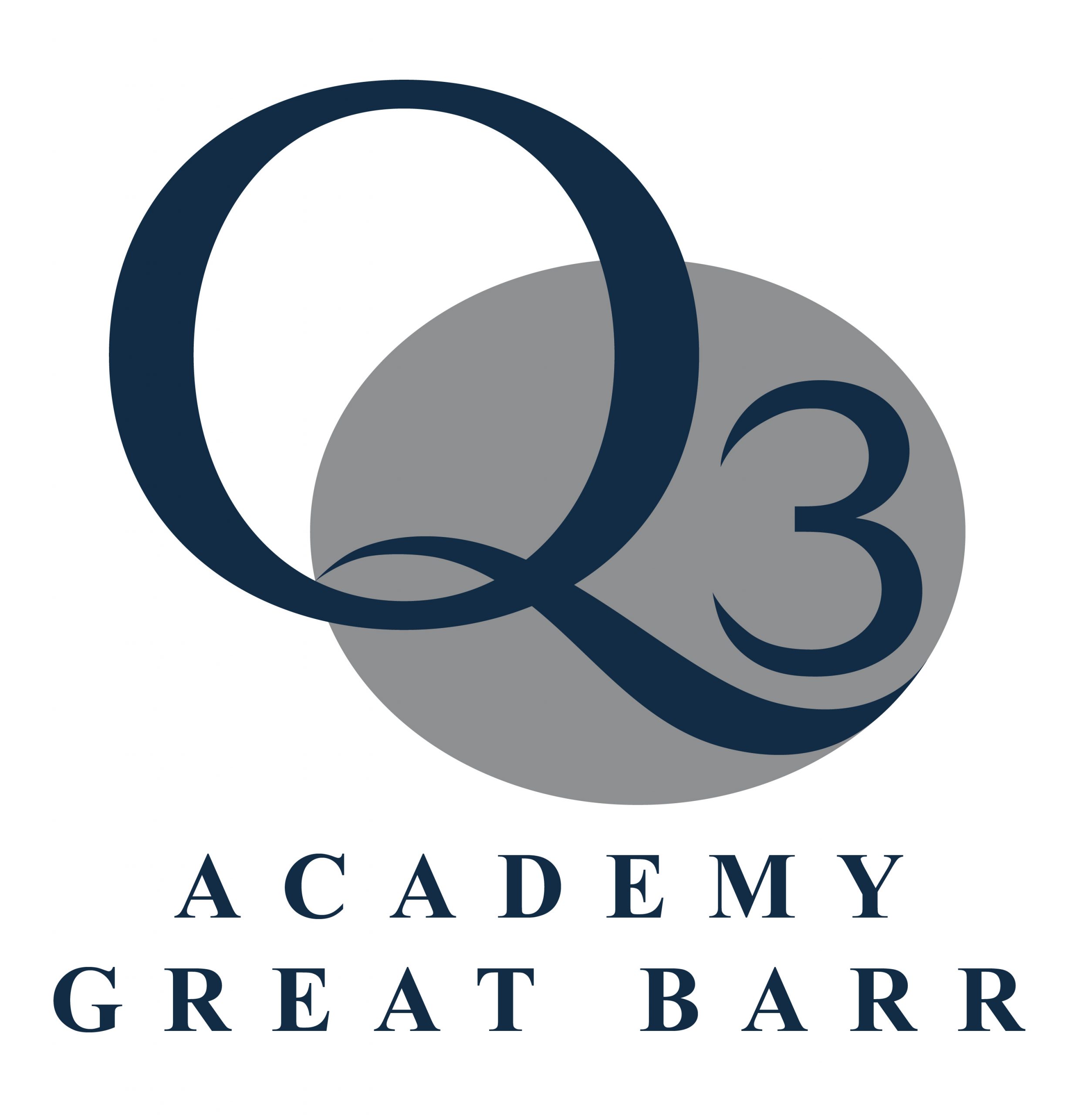Welcome
Art, Photography, and Textiles
Business & Economics
Careers Education
Child Care
Computing, Computer Science, & Creative iMedia
Design Technology & Food Nutrition
Drama
English
French
Geography
Government and Politics
Health & Social Care
History
Mathematics & Statistics
Music
Psychology
Religious Studies
RSHE
Science
Sociology
Wellbeing Active, PE, and Sport Science
Welcome to our Curriculum
Welcome to our curriculum at Q3 Academy Great Barr. We are proud to be able to offer a broad and balanced curriculum which provides all students the opportunity to be successful. We focus our curriculum around the English Baccalaureate suite of subjects (English, Mathematics, Sciences, Languages, and Humanities), but also provide a creative curriculum through Hori7on (Year 7), Cre8 (Year 8), and 9Teen (Year 9).
You will see from our curriculum maps that: Literacy, RSHE, and Wider Opportunities are embedded across our curriculum. We have particularly been focusing on the use of cross-disciplinary reading to support students’ achievements across a wide number of subjects. Disciplinary reading is incorporated into all subject areas to support the development of subject-specific vocabulary. In addition, our Tutor Time reading programme exposes students to range of books across a number of genres to develop comprehension and vocabulary.
Wellbeing is built into our curriculum and named. Wellbeing Active focuses on not only the National Curriculum for PE, but also reinforces healthy lifestyles and the importance of self-care. Wellbeing Inspire (RSHE/PSHE) focuses on the wider aspects of wellbeing related to how we respect ourselves, others, and the world around us.
Careers, Information and Guidance is supported throughout all Year Groups. For more information about our careers programme, please click here.
We follow a two-week timetable to provide students with more time across a wider range of subjects. We constantly review our provision to ensure we are providing the best education we can.
An average Key Stage 3 student studies:
|
Subject |
Hours per fortnight |
|
English |
6 |
|
Accelerated Reading |
1 |
|
Mathematics |
7 |
|
Computing |
1 |
|
Science |
8 |
|
Wellbeing Active |
4 |
|
Wellbeing Inspire |
2 |
|
Religious Studies |
1 |
|
History |
4 |
|
Geography |
4 |
|
French |
4 |
|
Art |
2 |
|
Design Technology |
2 |
|
Drama |
2 |
|
Music |
2 |
An average Key Stage 4 student studies:
|
Subject |
Hours per fortnight |
|
English |
8 |
|
Mathematics |
8 |
|
Science |
8 |
|
Wellbeing Active |
4 |
|
Wellbeing Inspire |
2 |
|
Humanities |
5 |
|
Option A |
5 |
|
Option B |
5 |
|
Option C |
5 |
Grouping
Students at Key Stage 3 are taught following a ‘mixed-middle’ approach. Therefore, the majority of the cohort is taught in mixed ability groups.
Those working well above expectations are taught separately for some subjects.
Those working significantly below expectations remain in a focused group for primary-style, targeted provision in some subjects. This has a further focus on literacy and numeracy and is supported by interventions within the SEN department where appropriate.
At Key Stage 4, students are grouped by ability, which is reviewed and adapted regularly, for English, Mathematics and Science. All other subjects are taught in mixed ability groups.
All groups at Key Stage 5 are mixed ability.
Please refer to our Curriculum Policy for further detail about our offer at Q3 Academy Great Barr.
Pathways
Please see the information and Subject Videos that can be found here.
Careers Education
Did you know? 97% of our students stay in education or enter employment after Key Stage 4. Please visit the DfE for more information.
Please find our Careers across the curriculum document below.
For further information, please click here to visit our Careers section of the website.
Design Technology & Food Nutrition
Religious Studies
You have the right to withdraw your child for all, or part, of Religious Studies lessons.
RSHE
RSHE is delivered at the Academy in Wellbeing Inspire lessons as well as through the Wellbeing Active and Science curriculum. Our RSHE policy can be found on our policies page here.
